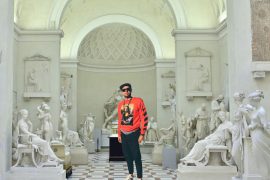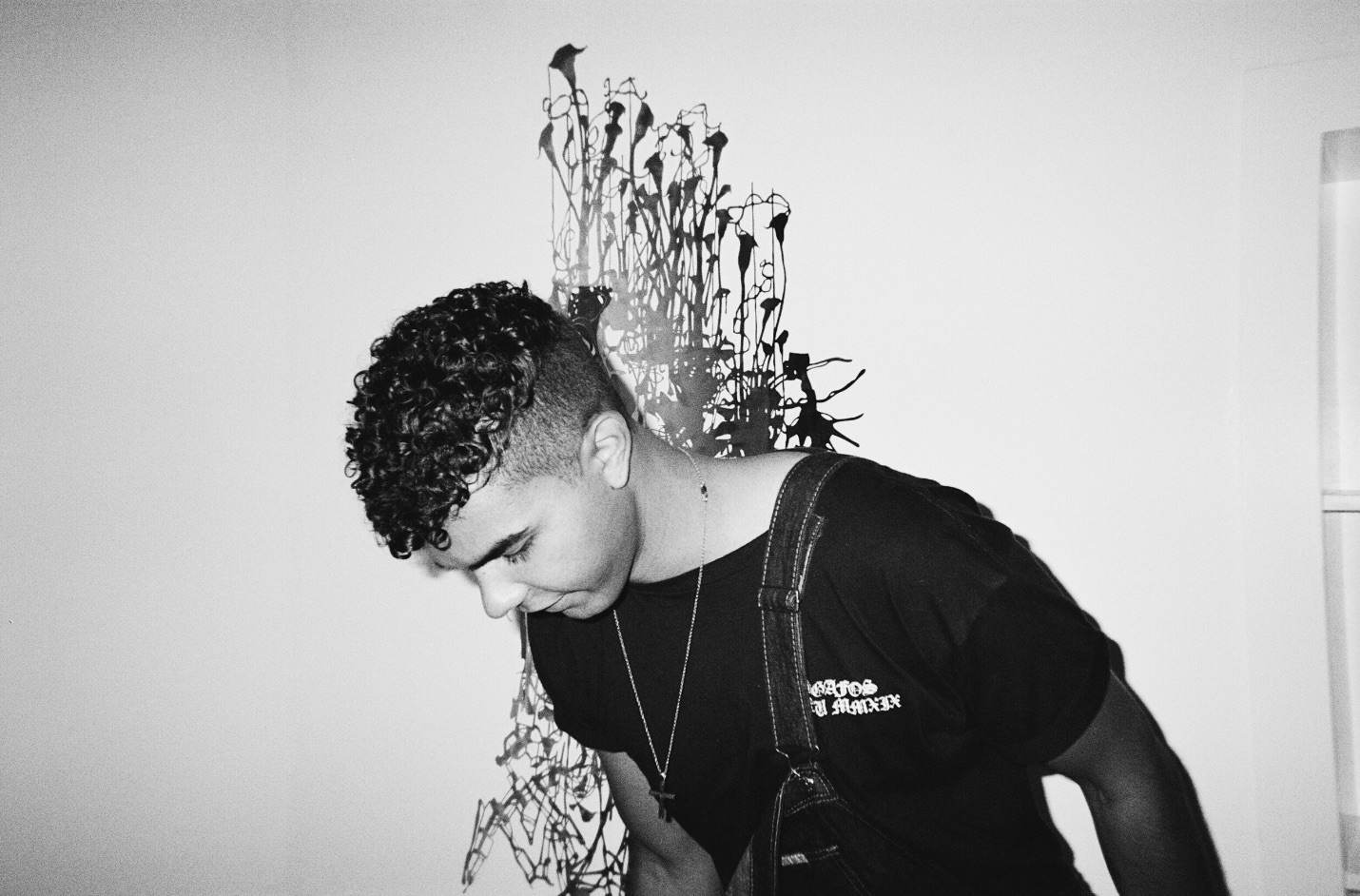From high school hallways to rocking out in their 20s, NYC’s Quarters of Change sat down with Atwood Magazine to discuss the release of sophomore album ‘Portraits,’ different manifestations of art, and getting back up each time you fail.
Stream: ‘Portraits’ – Quarters of Change
Meshing gritty rock stylings with transcendent pop rock, New York’s Quarters of Change create a vampy, soul shaking soundscape in their sophomore album Portraits. The four piece consists of Ben Roter, Ben Acker, Attila Anrather and Jasper Harris.
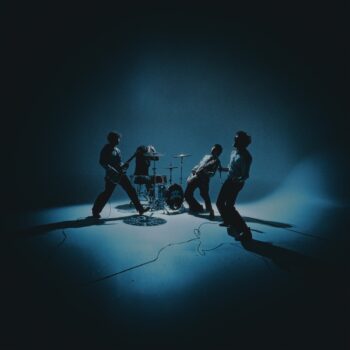
Released January 26th via Elektra / 300 Entertainment, Quarters of Change’s Portraits is blessing listeners’ ears with thrashing riffs that will entrance rock lovers, emotive screaming vocals and an absolutely electric energy between bandmates that is palpable through your headphones.
The thesis of the album lies in storytelling: “Each song stands alone as its own vignette, as its own portrait. We all got our own track, and then that ultimately, is going to culminate in the final album art. Which is all of us in one last portrait together, playing our music,” frontman Ben Roter shares.
The LP explores both emotional and sonic landscapes with each track chasing a sound or feeling to its most raw and authentic manifestation. Contemplative tracks like “Heaven Bound” ring out,
I kind of think that it’s over
I been a no-show
Heaven sent, heaven go
Time is cutting your throat
I kind of think that it’s over
I’ll be holding you close
When I’m bent, when I’m low
Feeling my heart explode
I kind of think that it’s over now
Heaven sent, heaven bound
– “Heaven Bound,” Quarters of Change
Atwood Magazine caught up with the band before the release of Portraits to discuss their roots, bringing back physical media and creating out in the woods.
— —
:: stream/purchase Portraits here ::
:: connect with Quarters of Change here ::
A CONVERSATION WITH QUARTERS OF CHANGE

Atwood Magazine: For the uninitiated, what is the story of Quarters of Change, how did you guys find each other?
Ben Acker: We found each other as people first, as kids growing up in the same neighborhood and schools. And then as we got older, music just kind of became a bigger and bigger part of each one of our lives until it just made perfect sense to join forces and create what we now know.
Do you guys remember what that initial ‘we should make a band’ conversation was?
Ben Acker: I just remember the first couple of shows were this unmatched feeling and like, it definitely gave the impression, in each of our heads, that this is how we can derive the most pleasure from life. So let’s keep it rockin’ and rollin’.
So you guys have been growing and changing together for quite a long time. You’ve released two EPs and an album together, what knowledge or lessons from those previous projects did you guys take into your newer projects?
Ben Roter: That’s a good question. The biggest lesson is to learn more you have to forget everything you know. I think we all really try to see every project as its own new thing. It’s always an evolution because it’s us, and we’re doing what we’re doing. And we’re going to evolve as people but to think about the project as something unbeknownst to the rest of what Quarters of Change’s discography looks like I think it allows you to pour a lot more originality into where you’re at. And presence of what you’re feeling at that time, which is ultimately what gets through to people.
Ben Acker: We’re constantly trying to learn things. And I think ultimately, Ben probably agrees with this, that through doing all these projects each failure that we’ve come across has been another lesson. And the most important thing that we’ve drilled into each other’s heads is that there’s no such thing as taking an L, it’s just a lesson, you know. You’ve just got to learn from a mistake and that’s how you ultimately grow. So we’re not afraid to make mistakes. We’ve made a lot! And so the culmination of this next album is to use all the lessons that we’ve learned
Ben Roter: And make more mistakes!
Ben Acker: I’m not gonna get into the details, but you learn so much about the music industry, through rollouts, and releases. Those things that we were so naive to two years ago. Every time you release a project, you become a better musician and you realize how much more of a student you are and how much work there is to go. It’s like the more you know, the less you know.
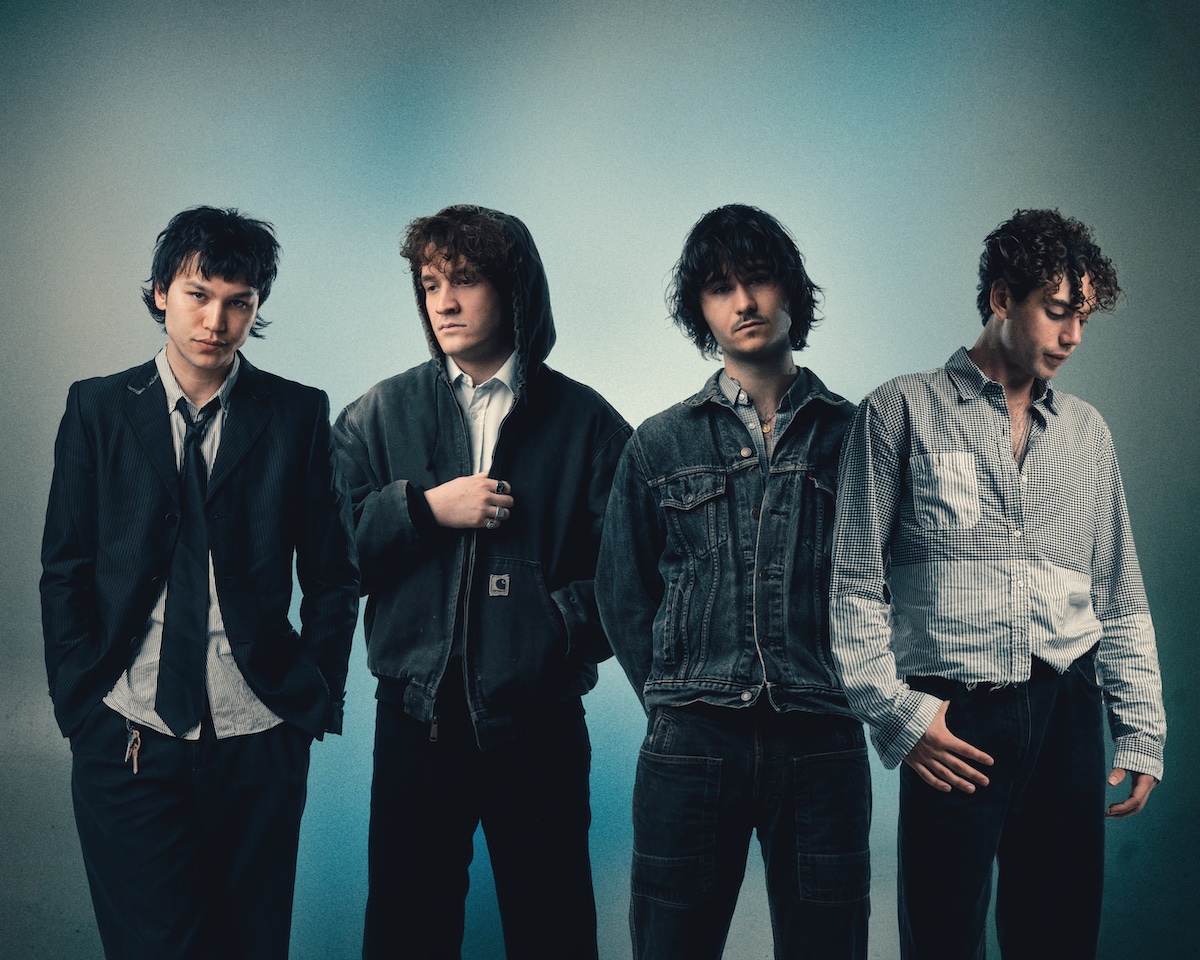
You guys have won many hats over the years as well you've produced and engineered and you guys are multi-instrumentalists. How is it putting the knowledge of those multiple facets of this industry into practice?
Ben Acker: There’s just like a ton of shit that you’re not going to want to do. You sign up for this career and you pray and you hope and you probably fantasize that all you have to do is play music. It’s wrong. That’s probably the biggest thing to know, there’s just a lot of stuff that you have to do, business things that musicians don’t want to do.
Now going into your newer projects, what can fans expect from this album, compared to maybe what was on Into the Rift?
Ben Roter: I think they can expect a more cohesive, mature sound. Into the Rift started when we were 19, and then ended when we were 21. And this project has been made in one year. It’s like goodbye teenage years, hello, 20s!
Is that the tagline?
Ben Acker & Ben Roter: *laugh* It could be!
Why the name Portraits for this album?
Ben Roter: I’m a little obsessed with the idea that at some point in our careers we create a full concept album. But this is sort of like a proto-concept album, where each song stands alone as its own vignette, as its own portrait. We were really trying to think, how can we possibly make this band more true to us. By giving each song its own portrait and letting it stand alone, it also gave us the opportunity to put each one of us forward as the portrait. So we all got our own track, and then that ultimately, is going to culminate in the final album art. Which is all of us in one last portrait together, playing our music.
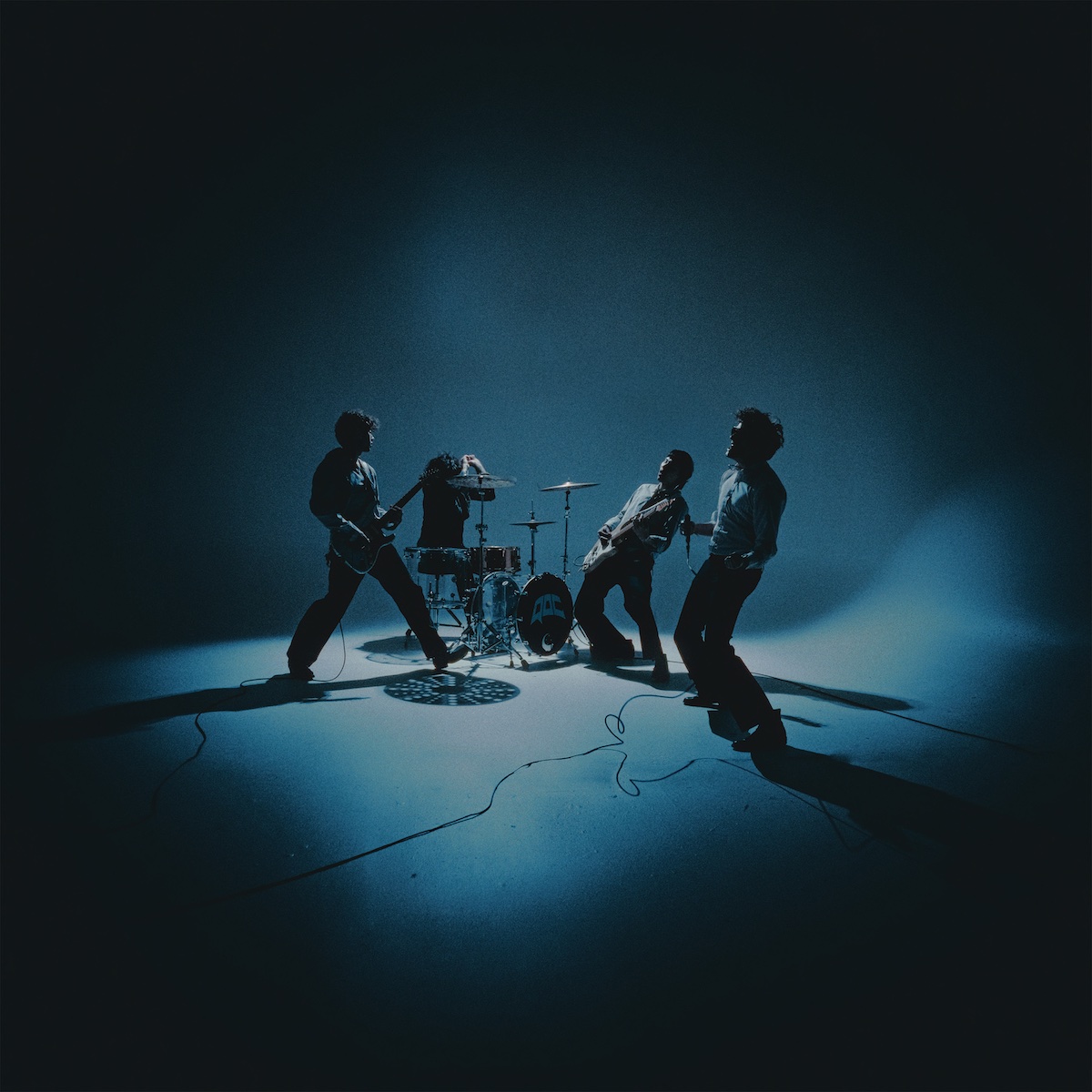
With each song being its own soundscape, or portrait, what was a sound or a sub genre or something that you guys really wanted to create a portrait of in this album?
Ben Acker: I definitely wanted to incorporate more 80s components than our last album. That’s pretty broad. But anything from The Police to Prince to U2.
Ben Roter: The feeling or the thing that we were really chasing was authenticity, and finding an authentic voice. For me, the portrait that I was chasing was ‘what is Quarters of Change?’ We were trying to achieve that by being like ‘let’s get more raw. Let’s write everything in a live room. Let’s change these elements of how we’re doing it, to just make it more us
I wanted to talk about specific tracks as well. I want to talk about “Depression.” It's a personal favorite track of mine, but it was also one of the first songs you guys ever released. So what made you want to revisit it on this album?
Jasper Harris: Just the chorus was really good. And the verse kind of sucked in the original and so we changed it.
Ben Acker: You know how The 1975 on every single album they put one song titled The 1975 We thought it’d be really cool if our thing was that every once in a while we make a second version of the song. And “Depression” was the one that came to mind immediately. It was like, ‘Oh, this would be super fun to do it again’.
Ben Roter: But no one’s still our shit! That’s our idea.
What's the next song that you guys would like possibly want to revisit or rerecord?
Ben Acker: I wanna do “Look Alive.”
Jasper Harris: I want to do “Depression” again.
Atilla Anrather: Why? You think we did a bad job this?
Ben Roter: Yeah? You hate the song Jasper ear you hate the song Jaffa?
Jasper Harris: Third time’s the charm!
Ben Roter: And when we finally get it right, we’ll drop a song called happiness.
Ha! I wanted to ask about “Time Before Mourning,” there's this distorted spoken word right at the end, what's the story behind that?
Ben Roter: It’s kind of an ode to a relationship gone by. I felt like we have a very movie like quality to a lot of our songs. And as I said, I was trying to find authenticity within it, I felt like it was kind of important to inject a moment of love that was real. So there was this video that I had of me and somebody. And it was just a really cute moment that I knew would make it more personal. For me, and maybe for others that are listening, they’re hearing pure love.
I also want to talk about the recording process of this album. So you guys have already mentioned there was a live room of sorts, what was that experience being all in that same room?
Ben Acker: I mean, that’s just kind of how we do it. You’re gonna get this theme of authenticity, like you’re gonna get the most chemistry and like, connection and essence of the way the song was written when we do it together. The most happy accidents, I would say.
I also read that you guys created the album in a cabin in the woods, tucked away for a couple of weeks. Can you tell me more about that experience? And how that may have shaped what the album sounded like?
Ben Acker: We wanted to get away from the city. Because we’ve done most of our writing here. And it’s a big urban jungle of distractions. And this was an opportunity to fully isolate, just the four of us with no outside influence, whether that was the city itself or people. It was a very challenging experience. I think we were just at it for hours a day pushing each other, disagreeing, replaying every song 10s of times. We did it in Woodstock, New York, which is a very historical place for music. It was the perfect amount of time, I would say.
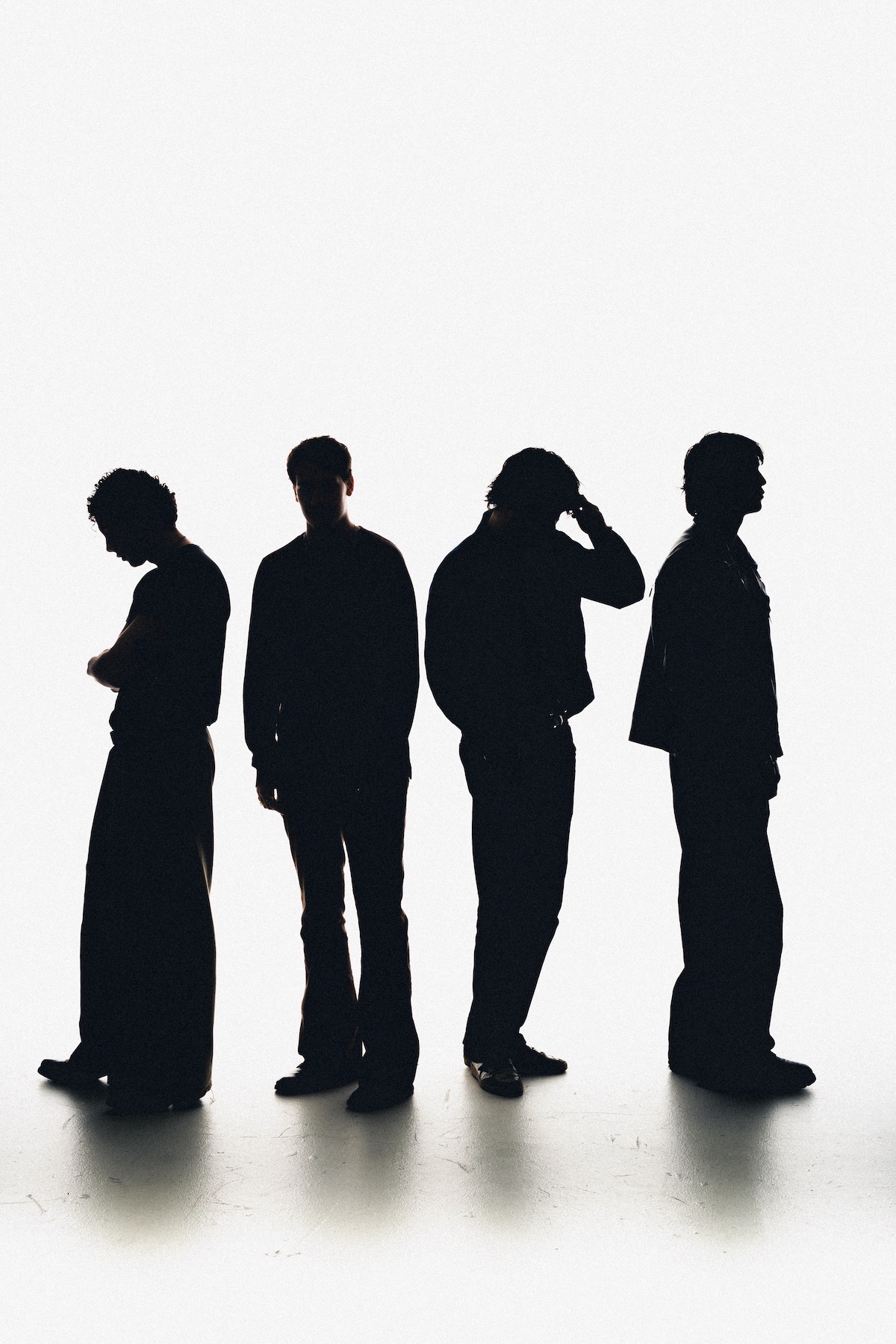
Do each of you have a favorite moment or memory from the creation of the album?
Ben Roter: I think one of the highlights for me was I was having some trouble with the second verse of “Hollywood Baby” and there was a hot tub outside. So we would go in there and just bounce ideas back and forth in the hot tub. So I think I think very fondly of that story. We hadn’t ever really asked for help, in terms of writing lyrics and stuff. So it was kind of a beautiful thing for us all to come together on that
Jasper Harris: I liked cooking together. That was fun.
Is there a specific track that you guys are really proud of that you're excited for people to get their hands on?
Ben Acker: I’m very excited for a track called “Turn It Away.”
Jasper Harris: Facts, me too.
Ben Roter: “Keep My Blood,” the last track, I’m probably most excited for
Atilla Anrather: Same here.
Actually speaking specifically to you, Attila, you did a lot of art for this release cycle, how was it kind of getting to unleash that aspect of your creativity?
Atilla Anrather: It was really cool. Honestly, it was definitely challenging. I had to push my comfort zone a lot. But it was really cool. Putting art to our music that I’ve been doing for so long was kind of refreshing for me. And refreshing musically, too!
Was there a specific piece of art that you were particularly proud of?
Atilla Anrather: Yeah, the “Do or Die” cover. I did a really big piece that ended up not working out, I ended up doing something completely different on very short notice and it ended up actually being one of my favorites. That goes to show you that sometimes the things that come together quickly sometimes are the best.
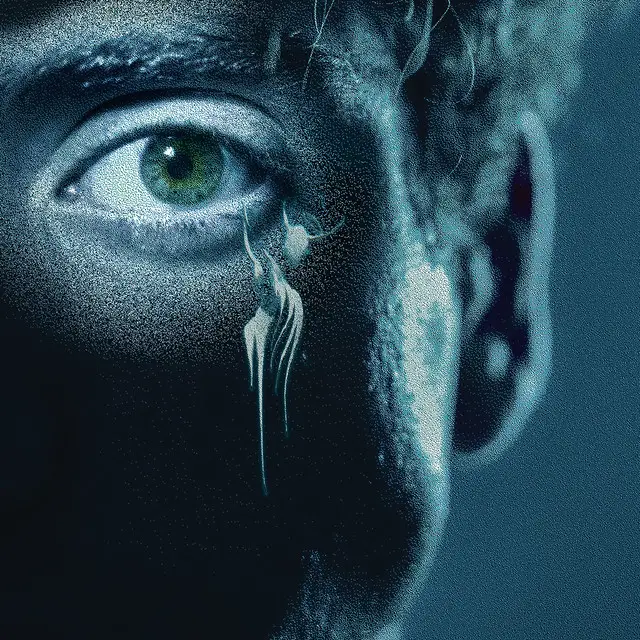
Going into creating the album did you guys have any expectations? What were they and did they change throughout the process?
Ben Acker: When we were up in Woodstock, we had such a firm vision that we wanted this album to be incredibly coherent in the sense that it would be produced and mixed by one person, one facilitator and it became a hodgepodge of four producers, a different writer. So essentially the exact opposite of what we had expected. Yeah, that’s just kind of how it goes. You’re never really going to stick to your plan. You have to be flexible on the details. And one might argue that that’s not a detail, that’s a huge part of the vision. But I think ultimately, the album is exactly what it was supposed to be. And, you know, our partners and our team, they have their own expectations, but we’re just super stoked that the album exists.
Ben Roter: Someone, I really don’t remember who, was talking about music and was just saying ‘if you think that the reward is anything but the creation, think again.’ I’ve just had that mindset throughout this whole process. And kinda like what Ben said things definitely changed from where we wanted it to be, but it ended up being our most cohesive album as a whole. And so I’m incredibly proud of that and I’m gonna be satisfied, just based on the creation of it.
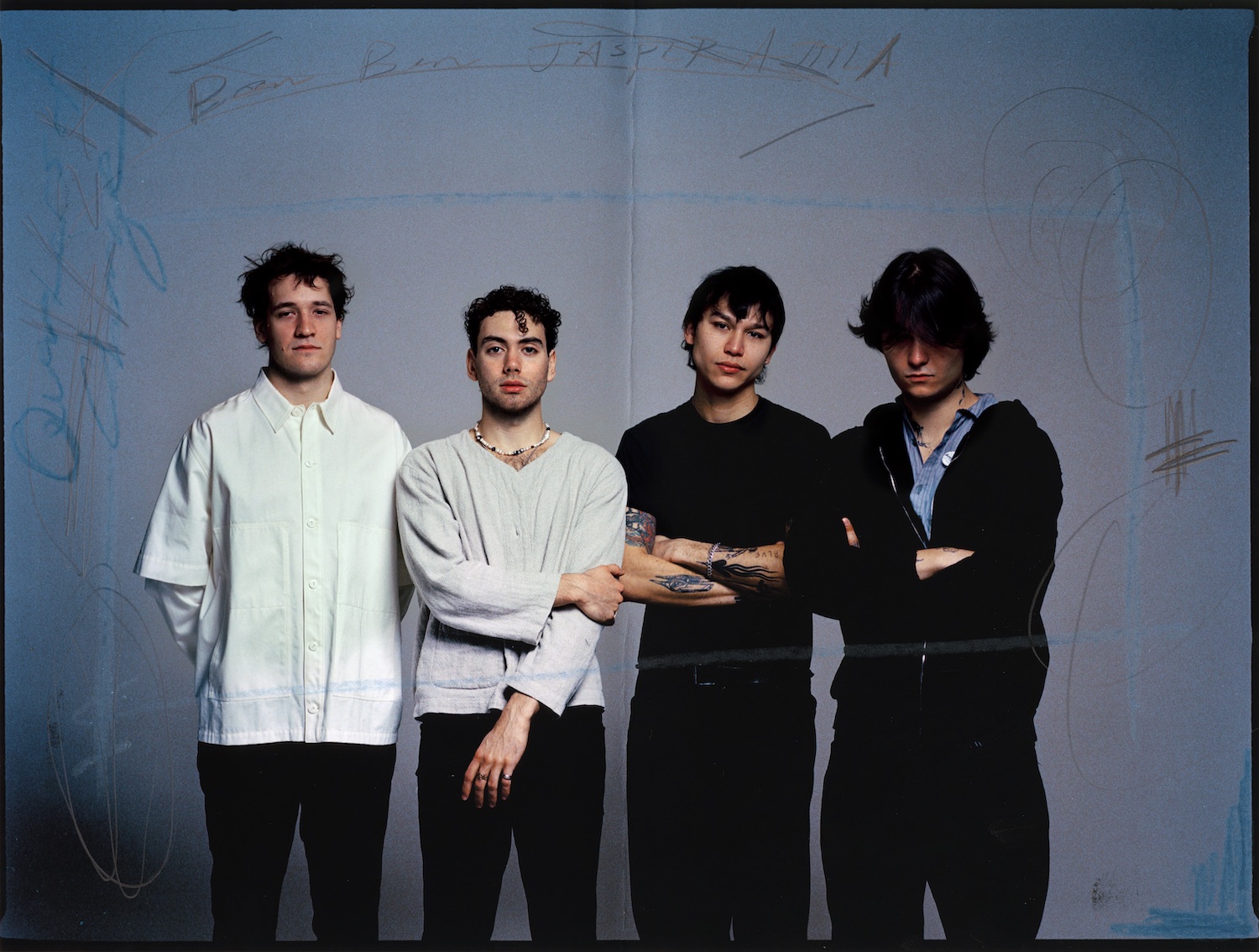
Going in with the intention of ensuring it was cohesive, what was the experience of putting together one cohesive album compared to a compilation of tracks or smaller projects?
Ben Roter: Yeah, I think our biggest ally in terms of creating that cohesion ended up being just the timeline that we were working on. Creating everything within the year and within a certain amount of months allowed it to sit as a unified piece. Compared to the other stuff that we were working on, the timeline of that stuff was three, plus, years. So the amalgamation of that just was a little bit more hodgepodge than this ended up being.
Is there anything more you guys want to share?
Ben Roter: We have been thinking a little bit outside the box in terms of music promotion, when the album comes out we’re trying to bring back physicals! CDs. So what we will be, we will be selling CDs. And we have a sick documentary coming out that we’re really proud of that was filmed all year with all the sickest moments. And we’re really excited to be able to hit the road, maybe soon again, see all the fans.
Awesome, is the physical media kind of thing, something that you guys are all really passionate about?
Ben Roter: I think that’s something that’s extremely lacking in the musical landscape due to streaming and everything. We want to bring it back.
— —
:: stream/purchase Portraits here ::
:: connect with Quarters of Change here ::
— — — —

Connect to Quarters of Change on
Facebook, Twitter, TikTok, Instagram
Discover new music on Atwood Magazine
© Anna Henderson
:: Stream Quarters of Change ::

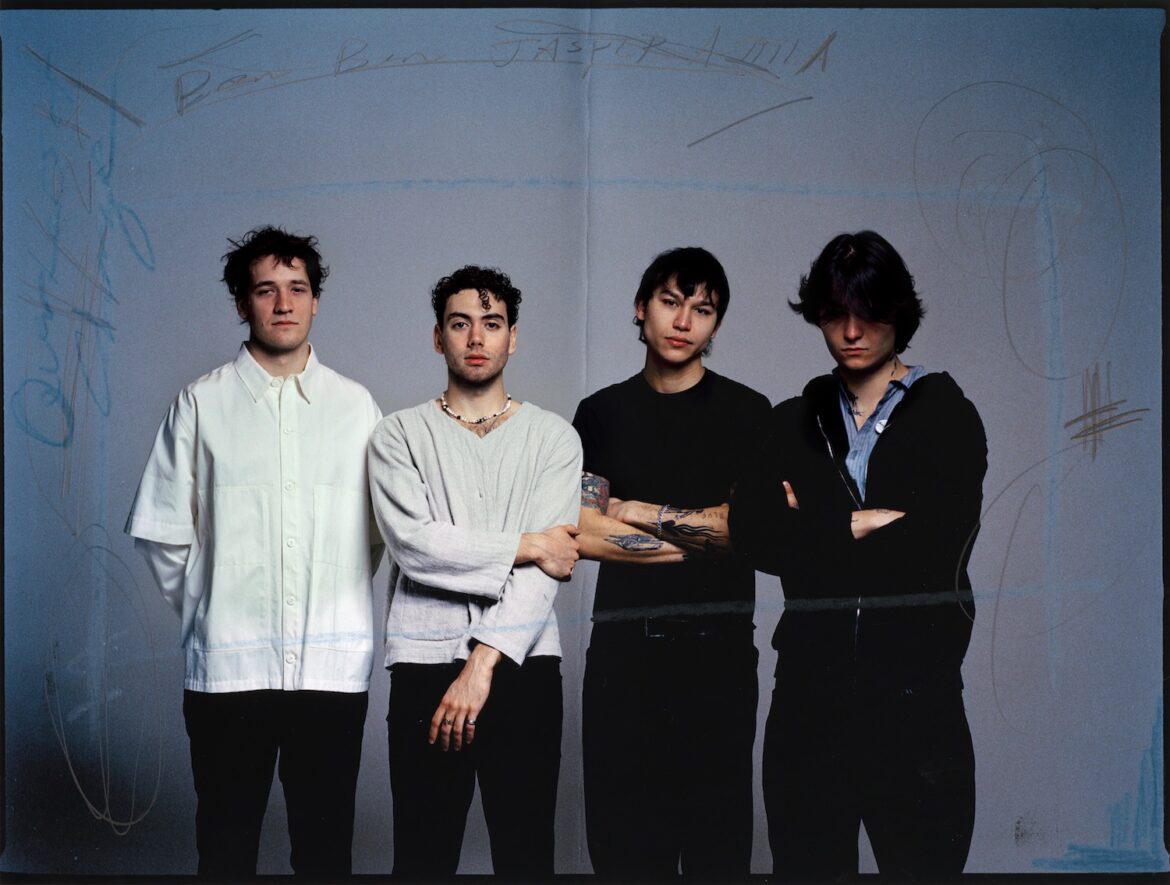
 © Anna Henderson
© Anna Henderson

